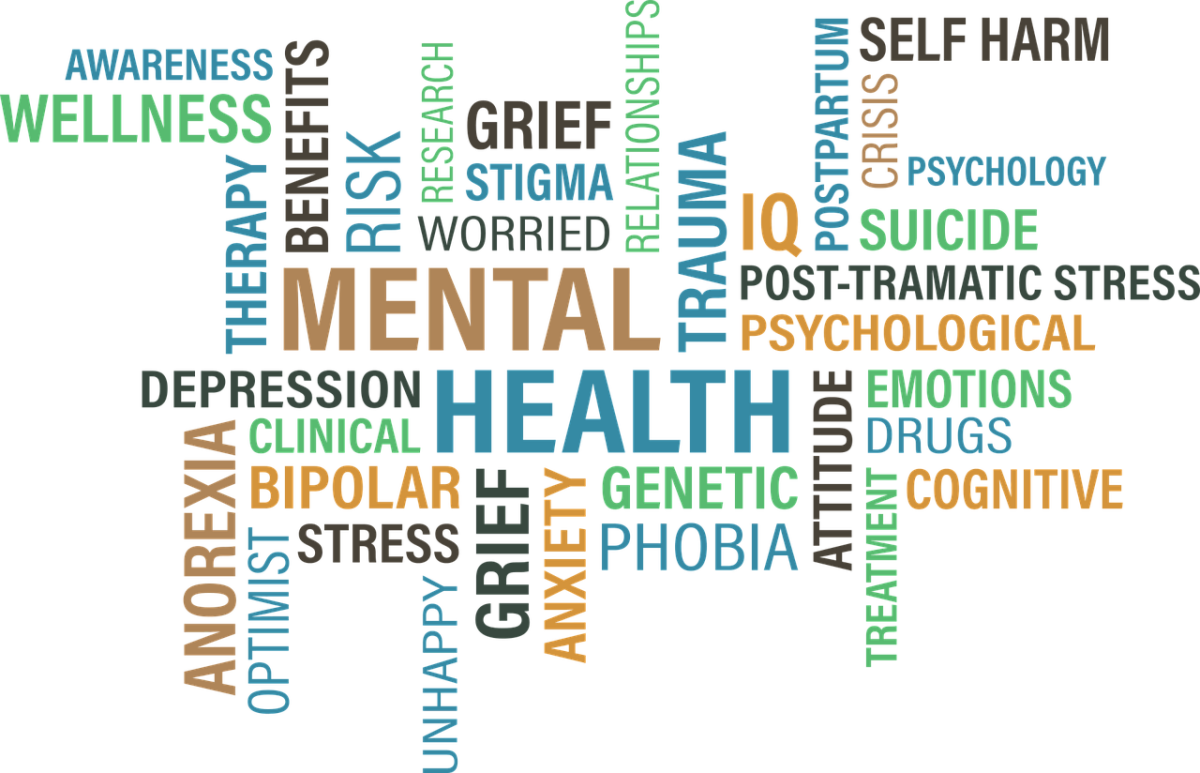- HubPages»
- Health»
- Mental Health»
- Emotions
Being Mentally Healthy

What is mental health?
Is it a sense of happiness or joy? The ability to bounce back in a crisis? Resiliance? Honesty? Peace? Contentment?
According to the professionals, mental health is determined by the ability a human being has to function in society at a satisfactory level. Well that clears things up doesn't it?
The truth is, most of us who are searching for how to be mentally healthy, probably already do function in society at a reasonable level. Yet we still feel mentally unwell. What is the problem?


Adjusting our definition of mental health
Unfortunately, most of us are bombarded with media's version of mental health. It includes regular shots of adrenalin and excitement, multiple adventures that keep life interesting and challenging, as well as passionate sex and feelings of being "in love" constantly. It is quite melodramatic, and seriously unrealistic.
Life is filled with mundane tasks, difficult relationships, and ho-hum moments. Learning to be mentally healthy in the real world takes an adjustment of our expectations. Happiness is not the warm feeling of hormones rushing through your body at the thrill of a new romance or adventure. That is excitement and passion- two elements that life throws at us on occasion. The operative word there is OCCASION. If we think life is all about passion and adventure, we will be depressed the majority of the time.
Characteristics of those who are mentally healthy
Characteristic
| Description
| The Negative
|
|---|---|---|
Stable
| Not given to extreme highs and lows.
| Unstable
|
Emotional
| Able to feel emotions like sadness, anger, frustration, and joy. The ability to express these emotions.
| Emotionally constipated
|
Introspective
| Someone who can spend time looking deeply into themselves for answers to their problems.
| Blaming others constantly
|
Spiritual
| People with a strong faith in someone higher than themselves are shown to be more humble and willing to let go of things they cannot control.
| They are their own god
|
Trustworthy
| Typically, mentally healthy people can be relied upon to do what they say they are going to do.
| Unreliable
|
Unlimited
| People who don't limit themselves to certain experiences based on fear of the unknown or fear of failure. Willing to try something new.
| Limited by fears
|
Not afraid of conflict
| Willing to engage in difficult discussions for the betterment of relationships.
| Always trying to make peace
|
Boundaried
| Has an understanding of what problems are theirs, and what problems belong to others. Is not afraid to say no.
| Unable to know where their problems begin and end
|
Resilient
| The ability to change expectations in the middle of an experience. They know how adjust themselves when things don't go well.
| Stubborn
|
Grateful
| The ability to see the glass half-full, even in the midst of crisis.
| Pessimistic
|
Outward thinking
| A recognition that the world is a big place, and their problems are not the only problems in the world.
| Self-focused
|
Responsible
| Not given to blaming the world for his/her problems.
| Nothing is ever their fault
|
Free
| Not needing substances or outside influences to make them feel "okay".
| Addicted to things like money, food, or alcohol
|
Identifying the problem
If you struggle with feeling mentally unhealthy, it is crucial you discover the root cause. Otherwise, you will chase solutions that ultimately leave you feeling defeated and continually depressed. The source of mental un-wellness can be difficult to discover, which is why finding a counselor to help you is crucial.
Causes of mental illness:
- Biological imbalances
Have you recently had a significant physical change (pregnancy, menopause etc.)? Is there a history of mental illness in your family background? Chemical imbalances in the brain can cause a host of issues and need to be addressed with therapy and medication. - Crisis or trauma
These events can alter your brain chemistry as well. Imagine a forest. When you go through a trauma, your brain creates a path in the woods (imagine someone going through with a machete). Once the trauma is passed, a smaller hiccup in life will signal to the brain, "Go down this path! It's nicely worn in!" You begin to react to small problems as if they are catastrophic. Your brain needs a rest to redirect those paths in healthier ways. - Poorly developed habits
Anything from addictive drinking, to endless video games, reality television, or other unhealthy lifestyle habits, can cause mental illness. A counselor who specializes in cognitive or behavioral therapy will be able to help you create new patterns in life. - Childhood issues
Unfortunately, most of our emotional problems stem from issues in childhood. Young minds are incredibly impressionable, leaving us vulnerable to adapting a world view that is seriously skewed. If you struggle with broken relationships, blaming the world for your problems, and low self-esteem, chances are there are some untended wounds from your past. - Toxic relationships
Nothing zaps our mental health faster than a toxic relationship. Problems such as abuse, co-dependency, explosive arguments, and other relational issues can turn the healthiest individual into a mess. The thing is, that mentally healthy people tend to stay away from these people anyhow, so there are two issues to deal with- the relationship, and why you allowed yourself in the situation to begin with. - Unreasonable expectations
If you think life is about a constant thrill, you will be continually disappointed. Learning to deal with boredom, mundane moments, and every day tasks will go a long way in helping your mental health.
Can you fix it on your own or do you need professional help?
One thing people must understand; getting a therapist is not a sign of weakness. It is a sign that you are willing to do the work to get at the root of your problem. This is a sign of strength. There is no shame in therapy.
However, some mental health issues can be dealt with in other ways. If you are having a life hiccup that isn't characteristic of your normal state of being, perhaps you can fix it with some good ol' fashioned self-help.
Other psychology articles by Julie
- Childhood Anxiety
Parenting a child who is plagued with anxiety is no simple task. Alleviate the ten most common childhood fears with helpful ideas from a mom who was an anxious child herself. - How to Deal with Low Self-Esteem
Though the phrase "self-esteem" is overused, there are good reasons you should care about your own. I challenge you to read and interact with this article like a mini-therapy session. It is helpful for people who have low self-esteem or those who thi
Solutions you can do at home
- Books
There are hundreds of self-help titles on Amazon. Depending on your problem, you can find a ton of resources to give you steps and ideas to combat the issue. - Self-help groups
Churches and other organizations offer groups for people in difficult relationships, financial problems, and other issues that can weigh us down emotionally. Stay at home moms need support groups too, as their stage of life is incredibly difficult and isolating. - Change your friends
Find new people to hang out. Only invest in those who are positive, compassionate, non-judgmental, and drama free. - Journal
Writing in a diary is not just therapeutic for you. It can reveal emotions and feelings you might be not be aware of. - Nature
Find time to enjoy the outdoors, animals, gardening, hiking, swimming, or any activity that pulls you outside. A change of scenery can get even the most muddled brain out of a funk. - Invest in your spirituality
Look outside of yourself for the meaning of life. You might be surprised how many mental problems are solved when you encounter the supernatural. - Develop new habits
Any new habit takes at least 30 days to get ingrained in the brain. Try something new if you find that your depression hits you at night. Action influences belief.

I think I need therapy. Now what?
Before you pick up the phone book and make a call, sit down and write out what you expect from a therapist. Counseling and therapy is a diverse field, and there are thousands of different styles and personalities. Ask yourself a few questions:
- Do you want a same sex therapist?
- Are you looking for action-oriented therapy? Do you want really practical advice?
- Do you suspect that many of your current issues have to do with childhood?
- Are you more comfortable one on one or in a group/couple?
- Are you willing to pursue the idea of medication?
Types of therapy
Style
| Description
| Best for:
|
|---|---|---|
Cognitive therapy
| Challenging negative thought patterns in order to change behavior.
| Depression and anxiety
|
Behavioral therapy
| Treating unwanted behaviors with systematic changes to habits.
| Phobias, OCD, fears
|
Psychoanalysis
| Exploring the mind (especially the unconscious) through various techniques.
| Deep-seated mental disturbances
|
Expressive therapy
| Using art, dance, music, and play to deal with issues. Trained therapists guide patients through exercises determined to reveal problems.
| PTSD, dealing with crisis and trauma
|
EMDR
| Eye movement desensitization and reprocessing used to treat post-traumatic stress disorder.
| PTSD
|
Couples therapy
| Used to deal with problems occurring in marriage.
| Marriage issues
|
Group therapy
| Used often for teens and adults who deal with substance abuse.
| Substance abuse, anorexia, gambling, etc.
|
All of these can be used in conjunction with one another, along with medication and other self-help strategies.
Directory of therapists
- Find a Therapist, Psychologist, Counselor - Psychology Today
Psychology Today: Browse our extensive directory of the best therapists, psychologists and counselors near you.
How to find a therapist
- Visit your primary care doctor to see if he or she has any recommendations. Your insurance company may also require a referral.
- Use online resources to find professionals in your area.
- Ask a trusted friend who goes to therapy, to recommend someone for you.
- Don't be discouraged if the first one you meet with isn't a good fit.
Keep in mind, a psychiatrist will be able to prescribe medication, while a clinical psychologist or licensed clinical social worker will not. However, if you find a counselor who cannot prescribe mediation but thinks you should be on something, many of them work with psychiatric nurse practitioners who will manage your medication. You can continue to see your counselor.
If you leave a session feeling uncomfortable, assess why. Is it because you don't like the style? If so, you can look for someone else. If however, you are uncomfortable because it brought up some unpleasant emotions, it may be the therapist is doing his or her job! Give it a few more sessions before you move on.
If after several months and a handful of therapists, you find no one who fits, you may want to explore the reality that you are unwilling to allow someone in. More than likely, you didn't run into 15 bad therapists, you just aren't willing to allow them access to your heart.
National Alliance for Mental Health
- NAMI | NAMI's Information HelpLine
Get information, assistance and referrals from NAMI's Information HelpLine.
Don't lose hope!
One of the greatest attributes of a mentally healthy person, is the understanding that all bad days (or seasons) eventually end. You are not destined to feel this way forever. There is help and a light at the end of the tunnel. Hopelessness and despair are a sign of a real problem. If you ever feel like life isn't worth living anymore, call the mental health hotline. Someone is there 24 hours a day to help.
Time is another healer of mental struggles. You will get better in time, I promise.


About the author
Julie DeNeen is a freelance writer and mom of three. She struggled with a serious bout of depression after the birth of her third daughter who was critically ill. She also has been diagnosed with generalized anxiety disorder as well as PTSD after a toxic and abusive relationship.
Her background ironically, is in clinical psychology. She writes from personal experience as well as academic understanding.
Are you interested in Hubpages? Sign up and publish your first article today!







